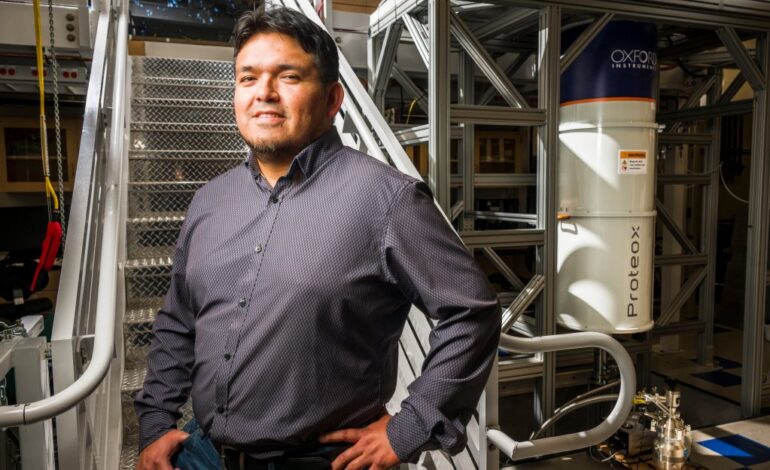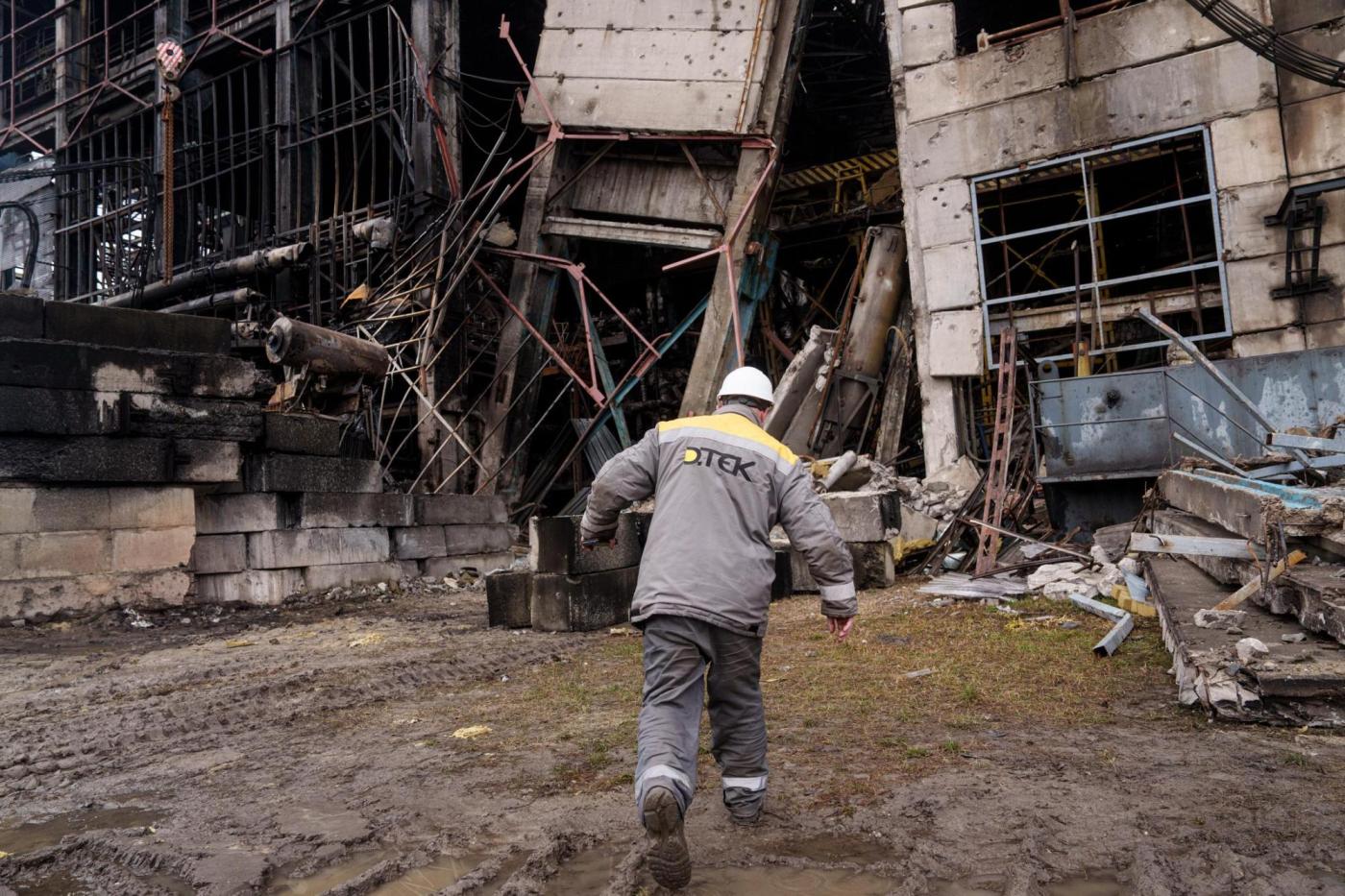UC Irvine Physicist Discovers New Quantum State, Advancing Space Tech

A breakthrough in quantum physics at the University of California, Irvine, may have significant implications for future technologies, including advanced computing and deep-space travel. Professor Luis Jauregui and his team have identified a new state of quantum matter involving excitons, which could enhance the development of computers resistant to radiation—a crucial factor for deep-space missions.
Located in Irvine, California, Jauregui’s lab is a hub for innovative quantum research. His work, alongside postdoctoral researcher Jinyu Liu, focuses on a material known as hafnium pentatelluride. This material has been instrumental in their exploration of excitons, which occur when electrons spin in tandem rather than in opposition, thus creating a novel form of quantum matter.
Jauregui emphasizes that while their findings are not inventions in the traditional sense, they represent a theoretical advancement that can be validated through empirical research. “Reality already exists,” he stated. “We just don’t fully understand its rules at the quantum level.” This perspective is particularly important as scientists navigate the complexities of quantum mechanics, an area that has gained considerable attention for its potential applications in various fields.
The significance of this discovery extends beyond theoretical implications. Jauregui notes, “It’s something that could lead to computers that aren’t affected by radiation.” This capability could become vital during long-duration space missions, where exposure to radiation poses serious challenges for technology and human health.
Jauregui’s research is part of a broader wave of quantum studies being conducted at institutions like UCLA and Caltech. These efforts are attracting both public and private funding, as the potential for quantum computing is seen as a future industry with significant economic promise. However, the Union of Concerned Scientists highlighted a concerning trend in federal funding for scientific research, which has reportedly halved in the first half of 2025 compared to previous years. This decline raises questions about the future of basic research, which is often not directly tied to commercial applications.
Jauregui argues passionately for the value of fundamental research, stating, “Basic research isn’t a waste. It’s anything but that. All kinds of research can always lead to something.” His work on excitons is a prime example, as it could pave the way for the next generation of quantum bits or devices, moving beyond the binary systems of current computers.
The journey to this discovery was not straightforward. Two years ago, Liu presented Jauregui with a paper that challenged existing theories about electron behavior. Jauregui welcomed this intellectual challenge, asserting that “mistakes tell us nature isn’t following the ‘script.’ That’s when things get exciting.” Despite the delicate conditions required to observe excitons, including magnetic fields much stronger than household magnets and temperatures akin to those found in deep space, the team succeeded in their research at the Los Alamos National Laboratory.
The potential applications of this new state of matter could revolutionize quantum computing, transitioning away from traditional electronic systems to possibly using new, more efficient chips based on the properties of tandemly spinning electrons. As Jauregui explains, “These states could be building blocks for new types of quantum bits or devices.”
Despite facing challenges in securing adequate funding, Jauregui remains optimistic. He acknowledges that the University of California’s Office of the President, the National Science Foundation, and Los Alamos National Laboratory are currently supporting his lab’s work. This support positions his team at the forefront of research into correlated topological matter, which could lead to groundbreaking advancements.
Reflecting on his path to becoming a quantum physicist, Jauregui recalls his childhood in Peru, where he was constantly dismantling objects to understand how they functioned. “From that point on, the path felt possible,” he stated, illustrating the serendipitous nature of scientific discovery.
Jauregui’s commitment to discovery mirrors a broader sentiment among scientists and researchers. Many emphasize that funding basic research fosters a culture of curiosity and innovation that benefits society as a whole. As Jauregui prepares for further experiments to explore the properties of excitons, he remains excited about the mysteries that lie ahead. “Every time we look, with better tools and purer materials, nature surprises us,” he concluded, embodying the spirit of inquiry that drives scientific progress.






